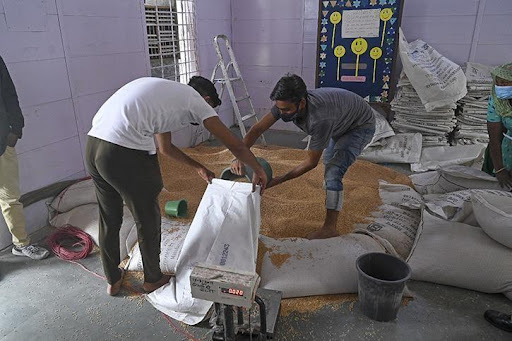
Client: Engender Health
Location: Tamil Nadu, Uttar Pradesh, Bihar, Madhya Pradesh, Telangana and Rajasthan
Background Context: Large-Scale Food Fortification (LSFF) is considered an effective and sustainable way of bridging the nutrition gap. The provision of fortified foods is done within the existing food systems.
Gender is a key dimension affecting the food systems and nutritional outcomes. The study aimed to understand and evaluate the extent to which the LSFF program supply chain mechanism is gender sensitive and understand the various existing platforms and enablers in the LSFF supply chain, which can be leveraged for gender integration.
Objectives
Development Solutions was commissioned to undertake a research study and assess the gender dynamics and their implications at the various levels of the LSFF supply chain, to identify opportunities and ways to integrate gender in the LSFF supply chain. The specific research objectives were:
- To present an overview of the current LSFF supply chain mechanisms for ascertaining to extent to which these are gender sensitive
- To highlight key components of a gender-sensitive lens in LSSF supply chain mechanisms
- Enable recommendations for gender integration within the LSFF supply chain – through communication, capacity building, monitoring, and evaluation (M&E), among others.
Approach and methodology
- Method/ Design: Qualitative study utilizing an intersectional approach using two frameworks: (a) The food systems framework for interactions between the supply chain, food environment, and consumers impacting nutritional outcomes; and (b) the socio-ecological model to understand gender sensitivity across – Government, institutions, and households.
- Key Respondents/ Informants: Fair Price Shop (FPS) personnel; Anganwadi workers (AWWs); state/district civil supply officials; women consumers of fortified food; fortified food manufacturers; officials from the Ministry of Consumer Affairs and Food Distribution, Food Safety and Standards Authority of India (FSSAI)/ Food Fortification Resource Center (FFRC- FSSAI), Food Corporation of India (FCI), National Institute of Food Technology Entrepreneurship and Management (NIFTEM), Food Industry and Capacity Skill Initiative (FICSI); representatives from the Bill and Melinda Gates Foundation, (BMGF), Global Alliance for Improved Nutrition (GAIN), Program of Appropriate Technology in Health (PATH), World Food Program (WFP), Nutrition India (NI), MicroSave (MS)
- Key Areas of Inquiry: Examining the significance of gender in the policy framework for LSFF, the LSFF supply chain, M&E in LSFF supply chain, the food environment and food consumption at the household level.
- Sample: 48 interactions using IDIs, KIIs, and FGDs.
Impact
The study enabled insights and recommendations on how gender could be integrated into various components and processes in the Large Scale Fortification Supply Chain, the associated risks, and their mitigation. Checklists were developed to guide development partner efforts on gender integration on aspects of capacity building, communication, M& E, and gender integration in the workforce in the context of LSFF.
